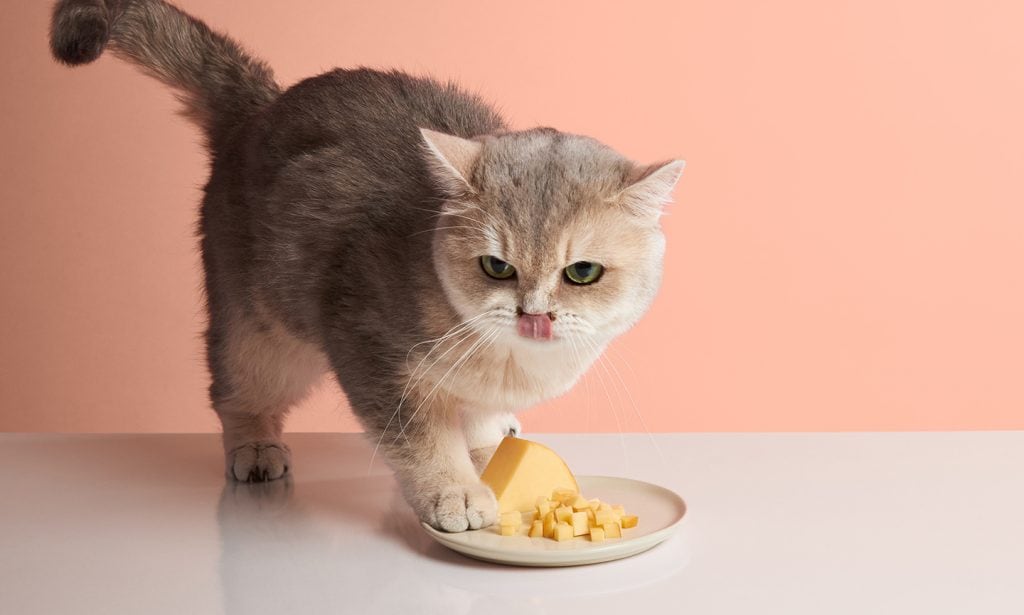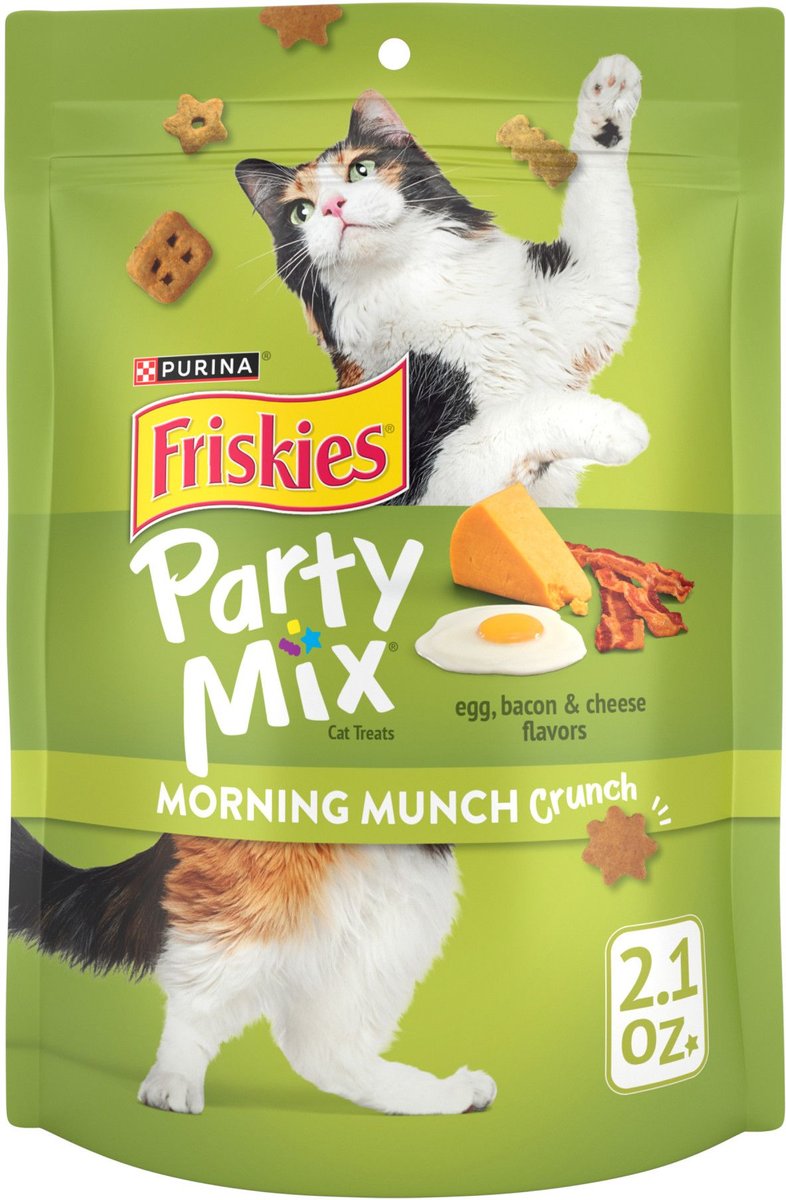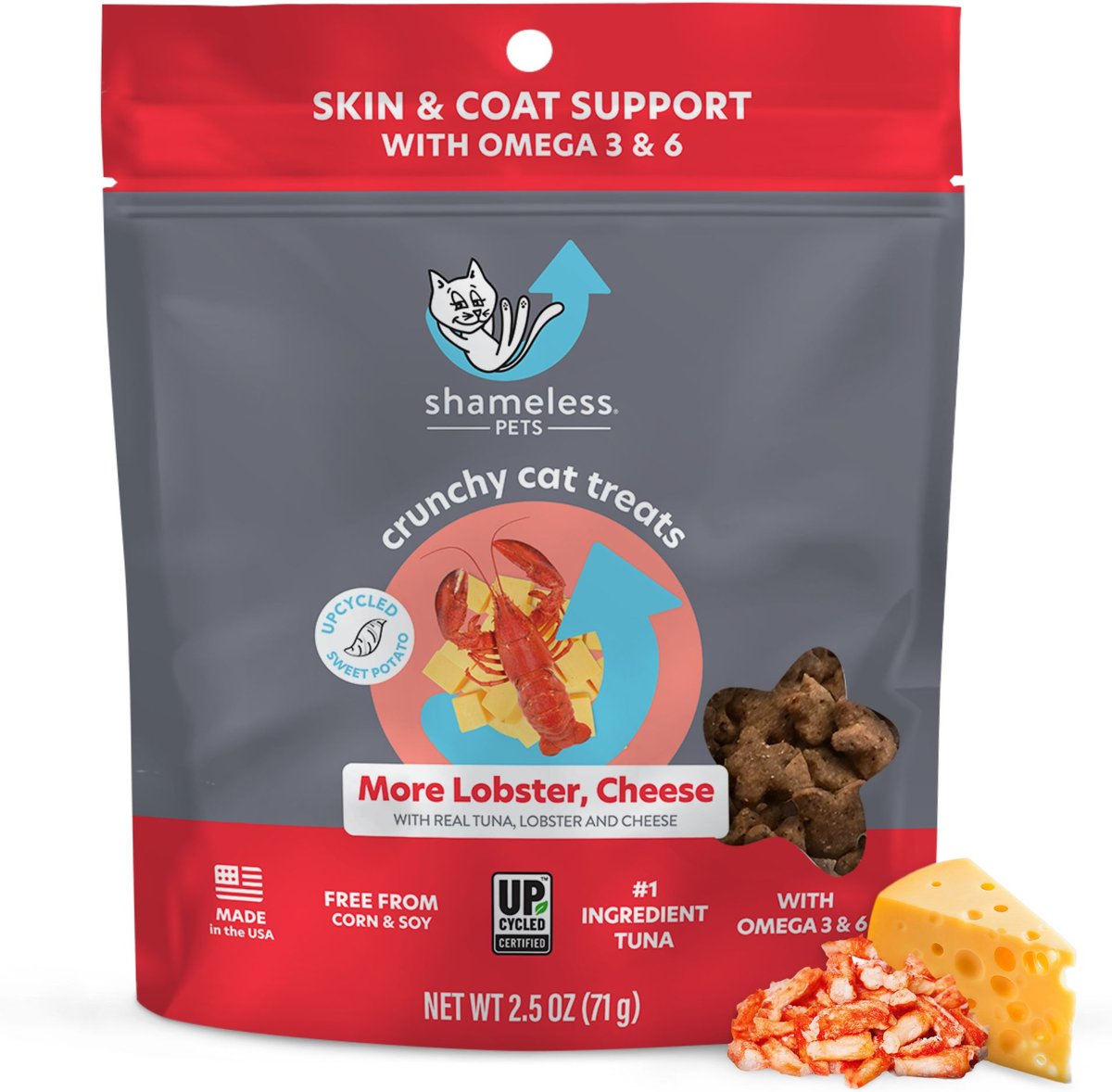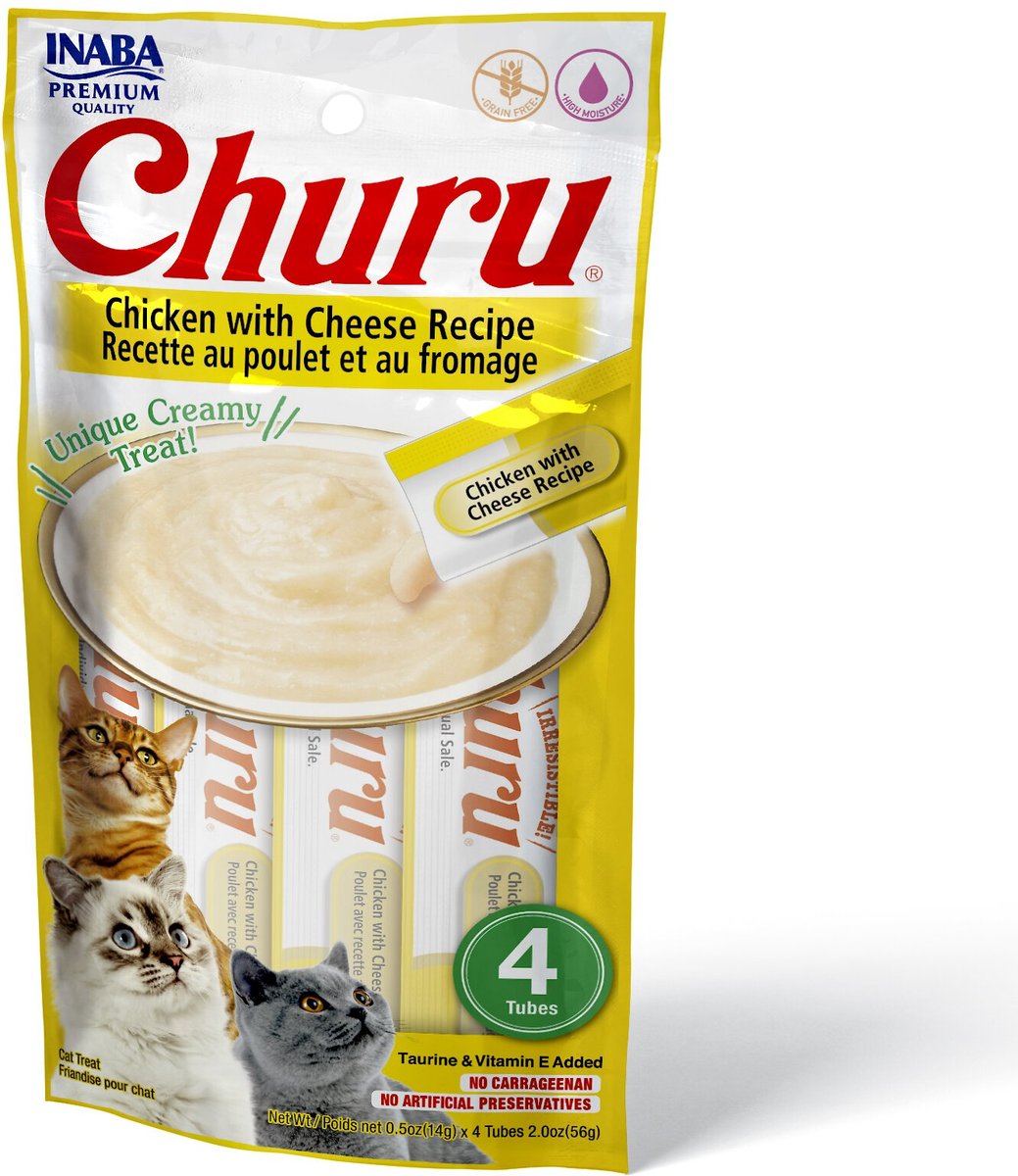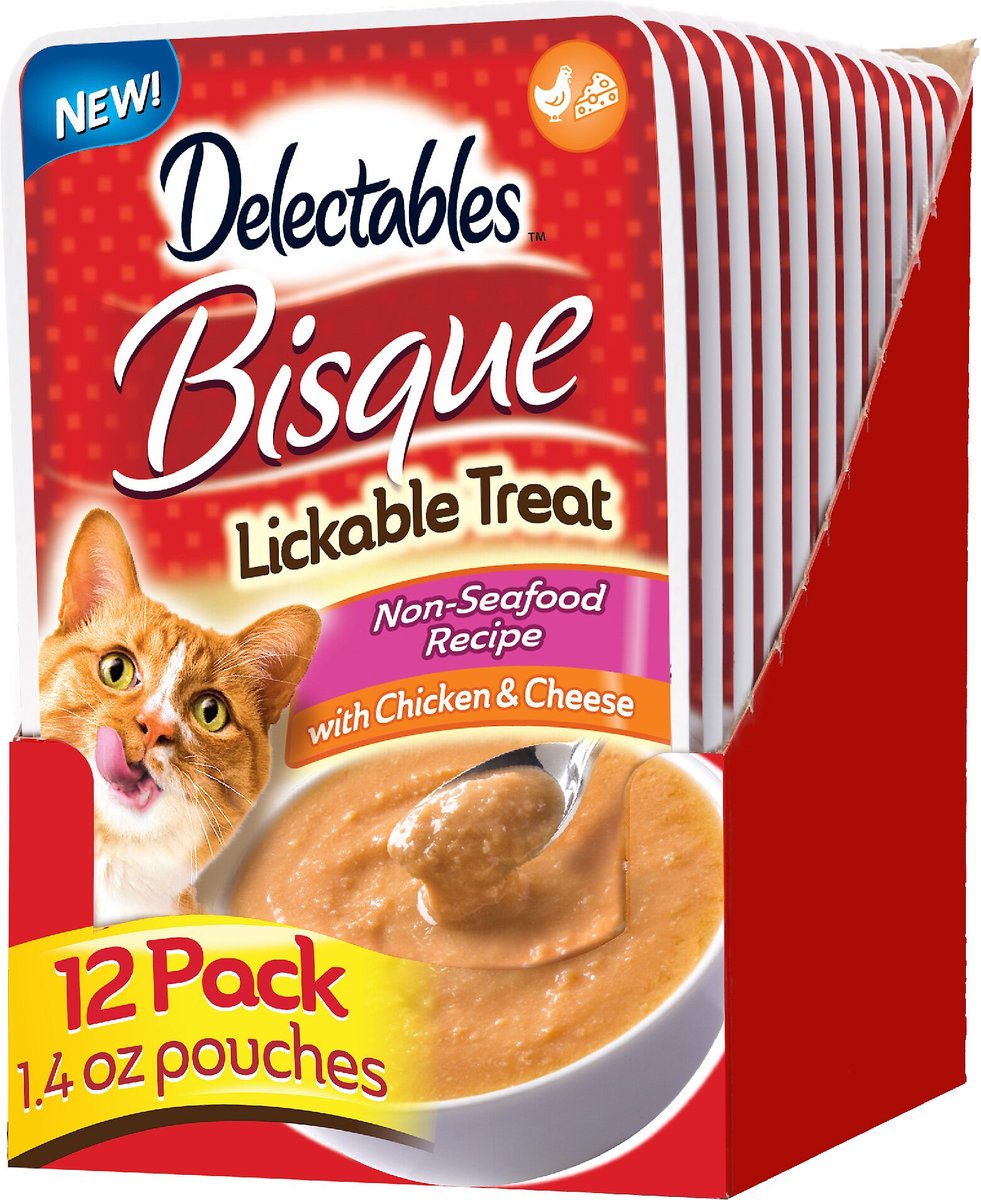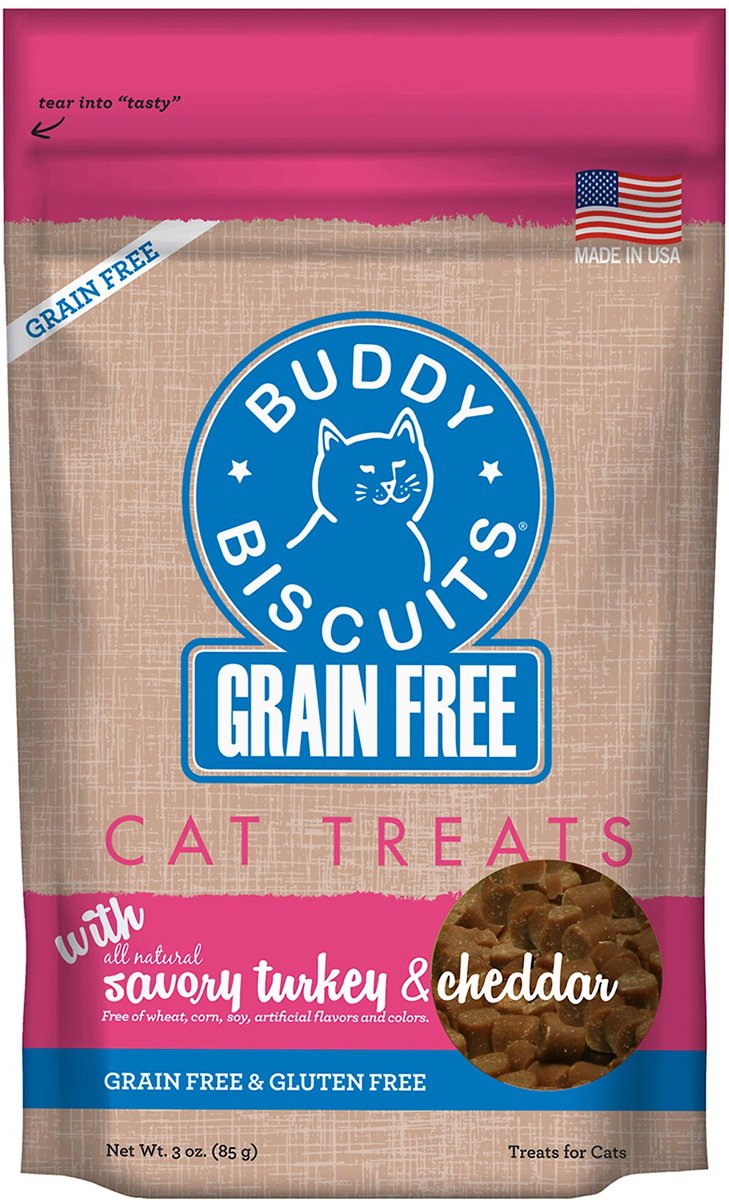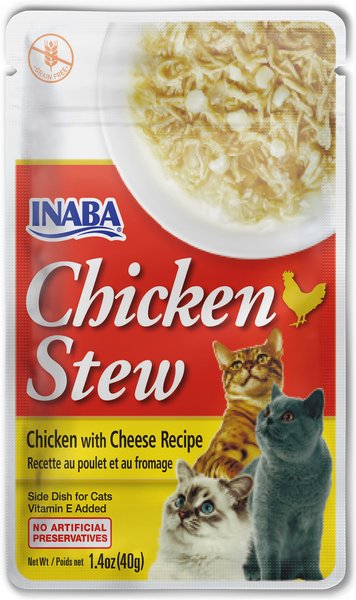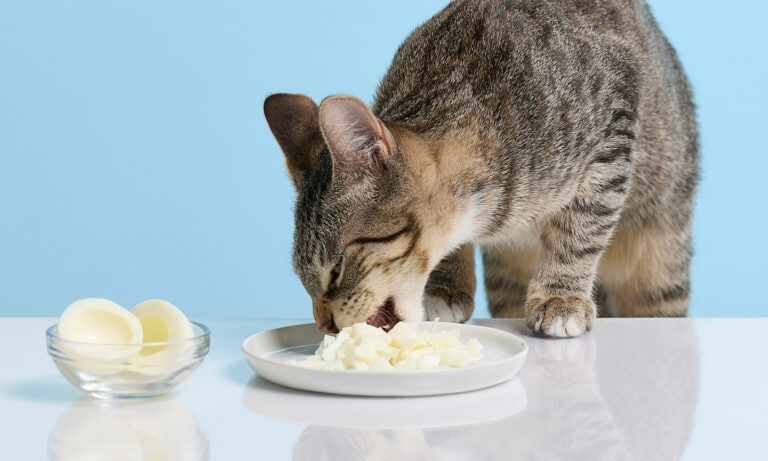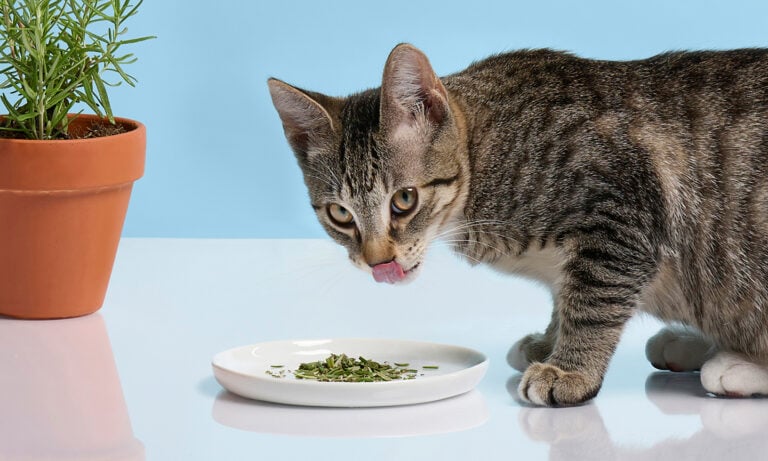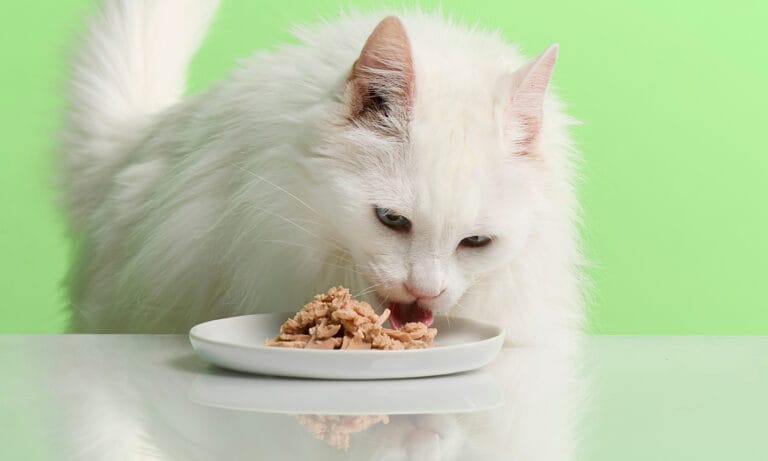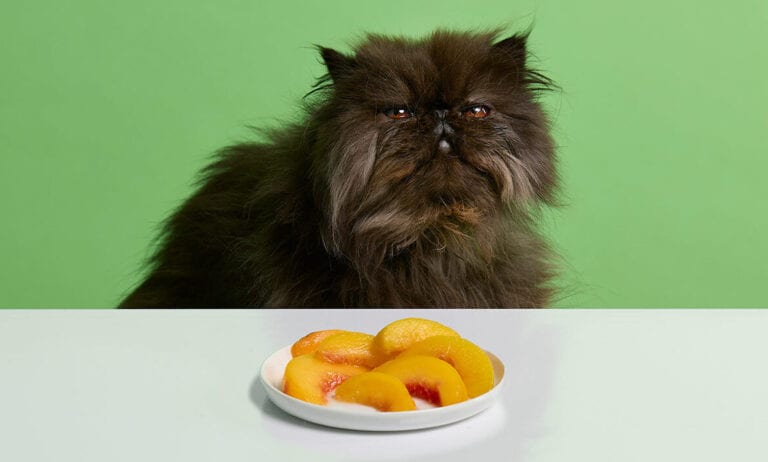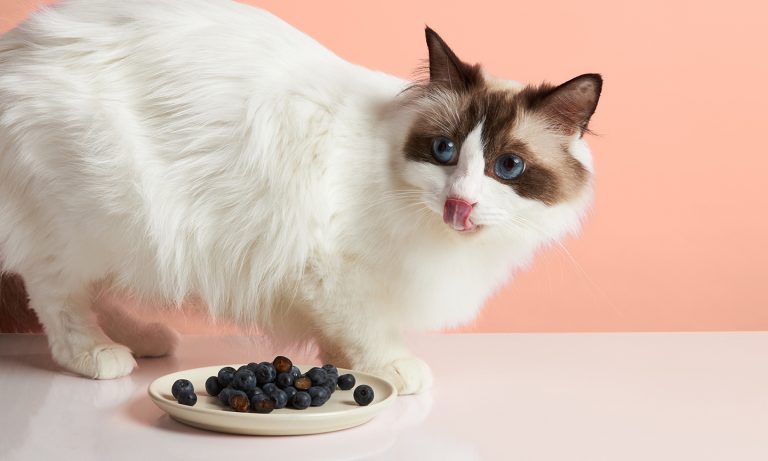
Nothing’s quite like cheese for us humans. It’s a delicious snack and can punch up almost any meal. But if kitty keeps sniffing around the cheese board, you might be wondering, “Wait, can cats eat cheese?” The quick answer is yep, they sure can. But! Portions should be small, and some varieties are better than others (which we’ll explain below).
We’ve got guidance on everything pet parents need to know about cheese for cats, including how to include what might be your favorite snack into your cat’s diet—thanks to Dr. Deborah Bayazit, DVM, co-owner and medical director of Brilliant Veterinary Care in New York City.
Benefits of Feeding Cats Cheese
Cats can have cheese, but how much of this yummy food can they eat? And are there benefits?
“Cats are often drawn to cheese, and it can be an acceptable low-carb snack,” says Dr. Bayazit. “It’s high in calcium and protein, and cats really love protein.
Keep servings to a little sprinkle atop the main course; or, offer the tiniest of bites, she notes.
The benefits of feeding cats cheese include:
- Cheese is a low carb treat, which is a good thing, because your furry friend has no requirement for carbohydrates in their diet.
- Cheese is high in calcium and protein. The protein helps entice your cat.
- Just a bite of cheese helps the medicine go down. It’s a useful way to hide pills and to make them more palatable.
- If your cat’s health is good, a teeny cube of cheese (about the size of a die) makes for a fine, fun snack. Just remember: No matter how much they enjoy it, only 10 percent or less of your purr baby’s daily diet should come from treats. Talk to your vet about your kitty’s daily calorie needs, and try this handy calorie calculator from the Pet Nutrition Alliance.
- Lastly, what’s not to like? Many cats are super fond of the taste. “Cheese has a high fat content and plenty of protein, both of which cats naturally relish,” says Dr. Bayazit.
Bottom line: Cheese is typically safe for cats and provides a few advantages, too.
Downsides of Feeding Cats Cheese
While cats can consume cheese, that doesn’t mean you should let them go hog-wild on the stuff. For cats with health problems—a heart condition, an allergy to dairy, or obesity—cheese is a no-no, Dr. Bayazit says.
“Large amounts of cheese is not good for cats,” she says. “Not only can it be high in fat and salt, but it contains lactose, a component many cats can’t tolerate.”
The downsides of feeding cats cheese include:
- Cats don’t digest dairy well, according to Dr. Bayazit. “It may not agree with them, and if they’re lactose intolerant, it can make them sick,” she says. And that popular image of the sweet kitten lapping up a warm bowl of milk? Thumbs (or rather, paws) down.
- Cat tummies are delicate, and cheese can wreak havoc on their digestive system, causing vomiting, gas, abdominal pains, even diarrhea.
- Cats are obligate carnivores (read: meat eaters); so, cheese, along with other dairy products, is not a natural food for them.
- The nutrients offered in cheese (protein and calcium) are more accessible in a good caliber cat food or even in cat delicacies made just for them.
- Tubby cats should steer clear of cheese. It typically has a high fat content (which can cause weight gain) and lots of calories.
How to Feed Cheese to Cats
Cats usually go head over heels for this human food, as they are attracted by the fat and protein cheese contains. So, getting your cat to eat it should be easy-peasy.
“If your cat doesn’t get ill from eating a new food like cheese, a bit of cheese as a treat or sprinkled over their meal is perfectly OK,” says Dr. Bayazit.
Here are some tips for serving cheese to cats:
- Once you’ve tried cheese, monitored your cat, and found that it doesn’t upset their tummy, a small amount of cheese as a treat is reasonable. Again, a serving about the size of a die is perfectly safe for cats to eat every now and again, Dr. Bayazit says. Keep it to a small piece of cheese they can easily bite and chew.
- For fussy, finicky felines, sprinkling some on their dinner can encourage them to eat. “Keep in mind that cheese is meant as a treat, and shouldn’t be a significant addition or supplement to their diet,” says Dr. Bayazit.
- While it’s OK for treats to take up 10 percent of a cat’s daily calorie intake, “since it’s high in fat and sodium, you might want to go even lower — 5 percent of their daily calories—for cheese,” says Dr. Bayazit.
- Try limiting the times your feline has cheese to periods when you need to hide medication.
- Your cat may desire a creamy Camembert, but stand your ground and tell them, “Hard cheese only, dude”—because the type of cheese matters. Hard, aged cheeses, like Swiss or Cheddar, have less lactose (so are not likely to cause problems) compared to soft varieties, like mozzarella or Brie. Certain ingredients can make cheese bad for cats. Avoid those with spices (garlic, onion, and the like) and cheeses with mold, like blue cheese, which contain Penicillium, and can be toxic to pets.
- You can also try a cheese-flavored treat like this grain-free, delightful puree from Inaba.
Of course, before handing over that small cube of cheese, consult with your veterinarian before feeding it to your cat. The vet can determine the right portion for your pet and weigh in on health issues that might preclude them having cheese.
Cat-Friendly Recipe with Cheese
Top Cat Treats with Cheese
Don’t feel like cooking? Hey, we don’t blame you. Thus, we’ve pulled the top cheese-flavored cat treats.
Breakfast of Champions
This Party Mix Crunch Morning Munch pairs cheese with bacon and eggs. It packs whisker-licking flavor that’s sure to impress even the pickiest connoisseur.
Fish ‘N’ Cheese
For an all-natural, luscious treat, tantalize your gourmand with Shameless Pets More Lobster & Cheese Crunchy Cat Treats. Made with lobster, tuna, cheese, and sweet potatoes, these flavorful treats support healthy skin and fur.
Lickable Yumminess
Your kitty will love slurping the creamy Inaba Churu Grain-Free Chicken with Cheese Puree, which is made with real, farm-raised chicken and cheese for a protein-packed flavor your pal will be purring for.
Creamy Cheese in a Savory Broth
Combining tender, real chicken with mouthwatering cheese and a savory broth, Hartz Delectables Bisque Non-Seafood Recipe Chicken & Cheese Lickable Treats is a great food-topper and paw-fect for senior kitties with trouble chewing.
A Grain- and Gluten-Free Delight
Cheddar Cheese adds flavor and variety to Buddy Biscuits Grain-Free with Savory Turkey & Cheddar. Quality ingredients with a cheesy meat taste your fur baby will prize.
Lip-Smacking Goodness
Inaba Chicken Stew Chicken with Cheese Recipe Grain-Free Cat Food Topper is crafted with 100% natural shredded chicken breast and creamy cheese in a savory chicken gelée. (Serve as a topper, side dish or treat; not intended to be a meal.)
FAQs About Cats Eating Cheese
Q: Can kittens eat cheese?
A: “Avoid it,” says Dr. Bayazit. “Since they’re growing, it’s important to stick with an age-appropriate specifically formulated kitten food. Plus, you don’t want them getting into the habit of eating it.”
Although kittens can handle dairy (their body produces a lactase enzyme that helps them process the lactose in their mother’s milk), between weaning and about six months of age, many lose the enzyme, and then have much less ability to break down lactose. That’s why you might see signs of lactose intolerance in adult cats.
Q: Can all cats eat cheese?
A: Nope, not all our feline friends can indulge in this treat. Some are lactose intolerant and eating any dairy can make them sick. Others have health conditions (they’re overweight, have heart, or kidney disease) and would likely need to avoid high fat content/high sodium foods, like cheese.
Q: What happens if a cat eats cheese?
A: There are cats who udderly adore cheese, so it’s not uncommon that they’ll be meowing for more. Others, however, get digestive issues. They just plain can’t tolerate it, or they have dairy allergies. Some signs it doesn’t agree with your kitty include:
- Vomiting
- Abdominal pain
- Gas
- Diarrhea
- Red or itchy skin
Q: Can cats eat dairy-free/vegan cheese?
A: “I wouldn’t give it to them,” says Dr. Bayazit. “Non-dairy cheese is no better for cats than regular and is still likely to be high in fat and salt.”
Non-dairy cheese can come with spices or additional ingredients such as onion or garlic which can not only bring on digestive trouble but are actually toxic for felines.
Q: What kind of cheese can cats eat?
A: Certain varieties are better than others. Here’s a checklist:
- Harder, aged cheeses are considered safe for cats because they’re low in lactose.
- Cheddar, Swiss, and Parmesan are good choices.
- Soft cheeses, like mozzarella, which can be higher in lactose, are on the no-fly list.
- Other no-goes include cheeses with spices, like garlic and onion, in addition to moldy cheeses (blue cheese, for instance), which have Penicillium and can be toxic to pets.
Q: Why does my cat love cheese?
A: That’s an easy one. “Cheese has a high fat content and plenty of protein, both of which cats naturally relish,” says Dr. Bayazit. It’s also salty. (Think about how much you enjoy potato chips and other savory morsels.) Considering that, who can blame them for developing a cheese affinity?
What Else Can Cats Eat?
Share:
